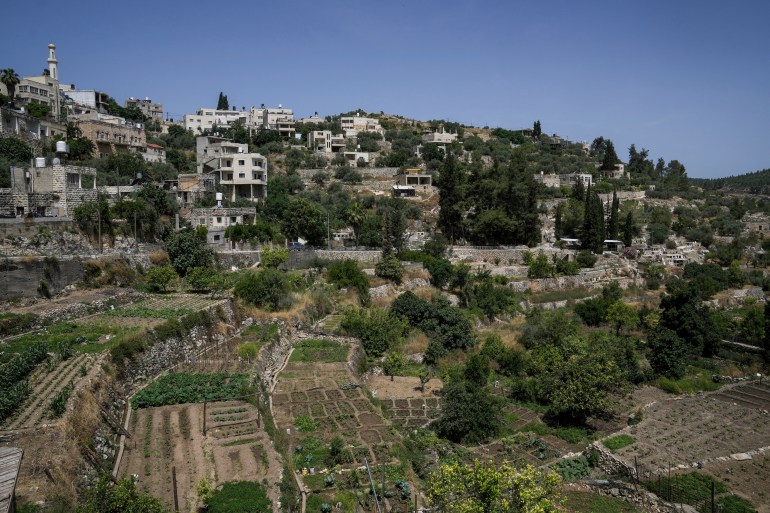What do watermelons, oranges, olives and eggplants all have in widespread?
Sure, technically, they’re all fruits. Possibly you assume they’re all scrumptious. However for Palestinians, they symbolise Palestinian tradition and identification.
In protest, agriculture, delicacies and literature, Palestinians use watermelons, oranges, olives and eggplants to symbolize nationwide identification, connection to the land and resistance.
Watermelons
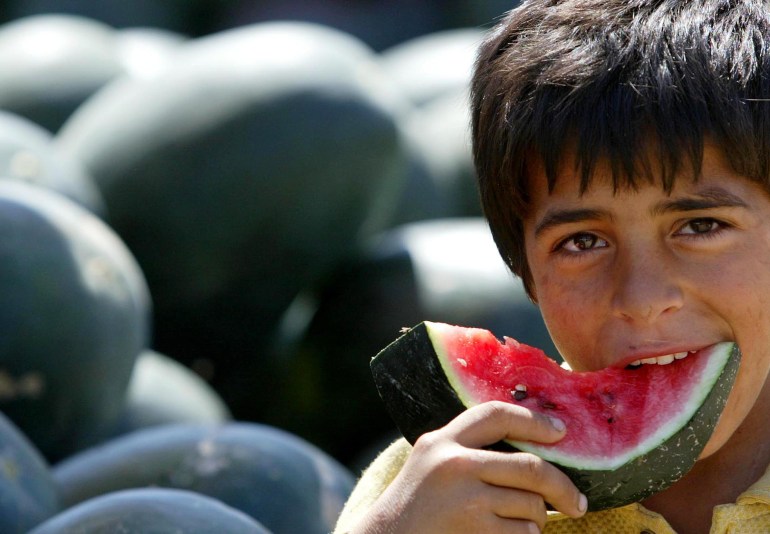
The watermelon is probably probably the most iconic fruit to symbolize Palestine. Grown throughout Palestine, from Jenin to Gaza, the fruit shares the identical colors because the Palestinian flag – purple, inexperienced, white and black – so it’s used to protest in opposition to Israel’s suppression of Palestinian flags and identification.
Following the 1967 struggle, when Israel seized management of the West Financial institution, Gaza Strip and annexed East Jerusalem, the federal government banned the Palestinian flag within the occupied territory.
Though the flag has not at all times been banned by legislation, the watermelon caught on as an emblem of resistance. It seems in artwork, shirts, graffiti, posters, and naturally the ever present watermelon emoji on social media.
Lately, the flag has come underneath hearth once more. In January 2023, the far-right Nationwide Safety Minister Itamar Ben-Gvir instructed police to confiscate Palestinian flags from public locations. This was adopted in June by a invoice to ban the flag in state-funded establishments, which Haaretz reviews acquired preliminary Knesset approval.
In response, Zazim, a grassroots Arab-Israeli peace organisation, positioned the Palestinian flag – in watermelon kind – on a couple of dozen Tel Aviv service taxis.
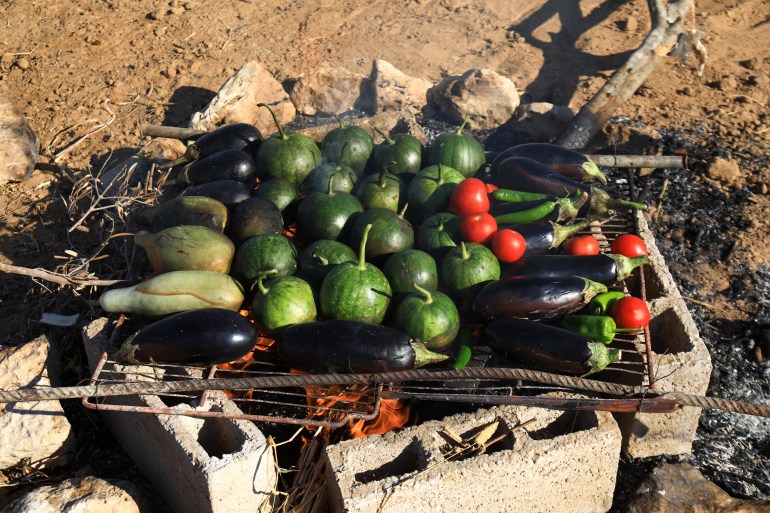
“If you wish to cease us, we’ll discover one other solution to categorical ourselves,” says Amal Saad, a Palestinian from Haifa who organised Zazim’s watermelon marketing campaign.
Saad was uncertain whether or not the fitting wing would attempt to cease her, so she stored her planning underneath the radar. Nevertheless, Saad mentioned the help she acquired was overwhelming, with greater than 1,300 activists donating to the trigger.
Grassroot donations allowed Zazim to maintain the watermelons up for 2 weeks, per week longer than was initially deliberate, and the marketing campaign has now shifted to distributing watermelon shirts.
Oranges

The Jaffa orange, which originated within the nineteenth century, gained prominence for its sweetness and thick, easy-to-peel pores and skin, which made it well-suited for delivery.
Earlier than the Nakba, or disaster, of 1948 when the creation of Israel led to the expulsion of greater than 750,000 Palestinians from villages and cities that their ancestors had lived in for hundreds of years, Jaffa oranges have been an vital export for Palestinian farmers and businessmen.
Due to their prominence, the oranges additionally grew to become an emblem of nationwide identification in literature and artwork. Palestinian novelist and journalist Ghassan Kanafani used oranges to symbolise loss in his 1958 brief story concerning the Nakba, referred to as The Land of Unhappy Oranges.
The story begins with the narrator and his good friend, each younger boys, observing their household on the eve of the Nakba. The households pack what they’ll, however they’re pressured to desert “the well-tended orange bushes that [they] had purchased one after the other”.
The truth that these bushes have been fastidiously nurtured over a protracted time period signifies the robust connection between Palestinian farmers and the land, which a whole bunch of 1000’s have been pressured to forsake in the course of the Nakba.
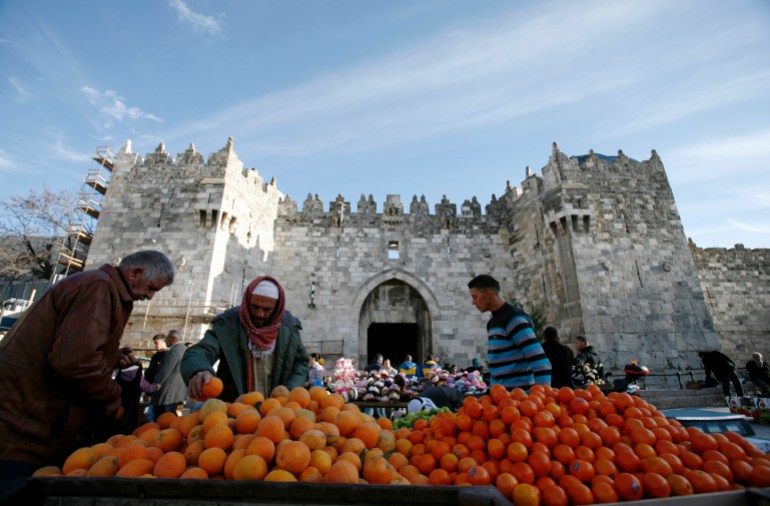
The final contact the narrator has with Palestine earlier than getting into Lebanon is a peasant promoting oranges alongside the street. Amid the sound of his household weeping, he picks up just a few oranges and brings them into Lebanon – a memento to “all of the orange bushes that [they] had deserted to the Jews”.
In Lebanon, life may be very laborious for the refugees, particularly for his good friend’s father. The story ends after the narrator witnesses his good friend’s father having a psychological breakdown. Subsequent to the crying, shivering grown-up, the narrator “noticed on the similar second [a] black revolver … and beside it an orange. The orange was dried up and shrivelled.”
The revolver, an emblem of demise, is linked to the shrivelled orange by the narrator’s gaze. Forcibly displaced from the “land of oranges”, the narrator realises the extent of the Palestinian folks’s loss.
Olives

Olive bushes will be discovered throughout Palestine and are an emblem of resistance. Nour Alhoda Akel, a 23-year-old Palestinian from the Ara valley, believes olive bushes are related to Palestinian identification as a result of, just like the orange bushes in Kanafani’s story, they symbolize Palestinians’ deep-rooted connection to their land.
“Olive bushes can stay for a whole bunch of years,” says Akel. “So if the tree exterior my home is 100 years outdated, I’ve an computerized reference to it”, referring to the land on which the tree stands.
Yearly in the course of the olive harvest, Akel joins her prolonged household to select olives from their grove, a household heirloom.
“The entire household goes out and everybody helps,” says Akel. After per week of choosing, they make olive oil and remedy the olives, sufficient to final the household till subsequent 12 months’s harvest.
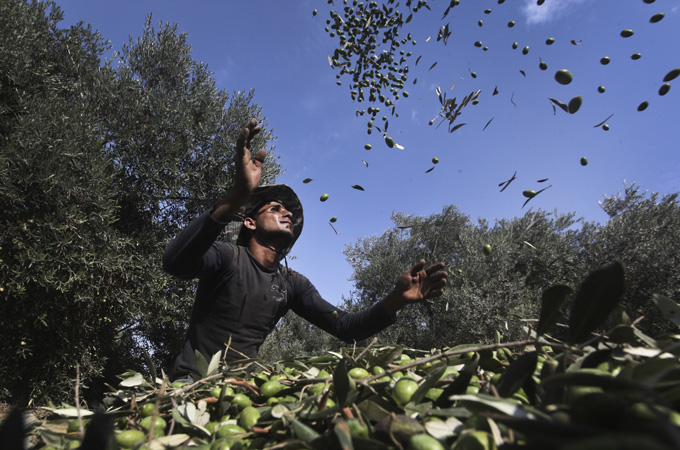
For different Palestinians, the olive harvest is an vital supply of earnings. Along with the oil, which Akel says is an important ingredient in Palestinian delicacies, olives are utilized in cosmetics and cleaning soap.
In recent times, Palestinian olive bushes have come underneath assault by Israeli settlers within the occupied West Financial institution. In accordance with the UN, greater than 5,000 olive bushes belonging to West Financial institution Palestinians have been vandalised within the first 5 months of 2023.
In earlier years, settlers attacked Palestinians in the course of the olive harvest, which usually falls in October and November. On sooner or later alone in October 2021, Al Jazeera reported that settlers uprooted 900 olive and apricot saplings, and stole olive crops within the village of Sebastia, north of Nablus.
Eggplants
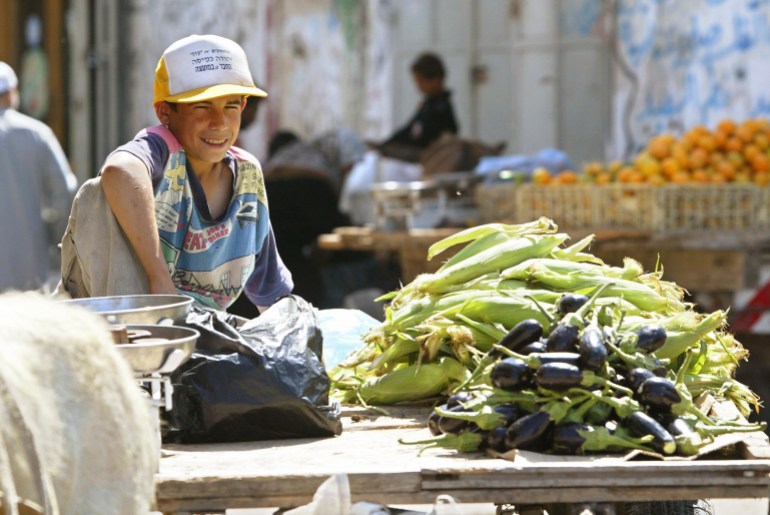
In Edward Mentioned’s photonovel on Palestinian identification, referred to as After the Final Sky, he devotes just a few pages to eggplants, particularly these from Battir.
Battir is a UNESCO World Heritage Website recognized for eggplants. It even periodically hosts an eggplant pageant.
For Mentioned, eggplants are a approach for him to attach with Palestine regardless of residing in the US. He lived most of his life as an exile. On the time of scripting this e-book, Mentioned was nonetheless a member of the PLO, so Israel barred him from getting into his homeland.
Mentioned recounts that his household was notably connected to the Battiri eggplants.
A lot in order that even “in the course of the a few years since any of us had Battiri eggplants, the seal of approval on good eggplants was ‘They’re nearly pretty much as good because the Battiris,’” he writes.
